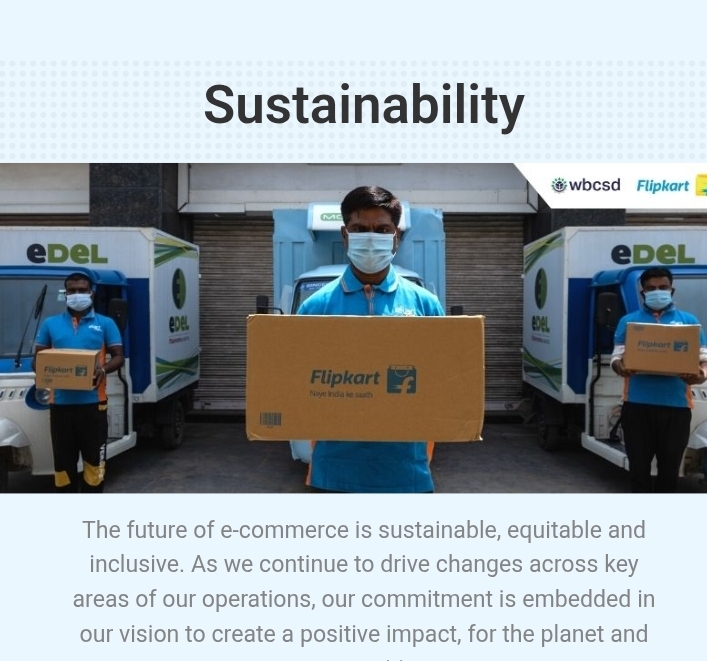Flipkart Group’s Self-Audit on Dark Patterns: A CX Milestone for Responsible Digital Governance
Flipkart Group’s recent self-audit on dark patterns marks a pivotal advancement in India’s e-commerce landscape. With consumer trust at its core, the group companies—Flipkart, Myntra, Flipkart Wholesale and Cleartrip—have proactively aligned with the Central Consumer Protection Authority (CCPA) Guidelines. This bold step raises the bar for transparency in online shopping.
Embracing Transparency to Elevate Customer Experience
First and foremost, Flipkart Group has demonstrated an unwavering dedication to customer-centric design. By voluntarily assessing its platforms against the CCPA’s dark-pattern regulations, the group ensures that consumers receive clear, honest information at every touchpoint. Moreover, this initiative signals to customers that Flipkart values their autonomy and decisions. Consequently, shoppers can navigate menus, filters and checkout flows without hidden tricks or confusing prompts.
What Are Dark Patterns and Why They Matter
In digital design, dark patterns refer to interface tactics that manipulate users into choices they might not otherwise make. For instance:
- Sneak into basket: automatically adding unrelated items
- Roach motel: making subscription cancellations difficult
- Confirmshaming: guilt-tripping language to discourage opting out
Although subtle, these tactics erode trust and harm long-term reputation. Conversely, ethical design encourages fair guidance and smooth experiences. In fact, research shows that transparent interfaces boost repeat purchases by up to 20 percent and increase Net Promoter Scores significantly.
Aligning with CCPA Guidelines: A Proactive Approach
Flipkart Group submitted its self-audit completion declaration to Smt. Nidhi Khare, IAS, Secretary of the Ministry of Consumer Affairs. This formal step underlines the organisation’s full compliance with both the 2023 and 2025 CCPA advisories on dark patterns. Furthermore, the group’s top leadership—represented by Rajneesh Kumar, Chief Corporate Affairs Officer—emphasised its pledge to “uphold the highest standards of compliance, accountability and consumer protection.”
Training, Policies and Ethical Design Practices
To guarantee consistent alignment, Flipkart Group has:
- Developed robust policy frameworks that prohibit deceptive design
- Implemented intense staff training on consumer rights and transparency
- Embedded ethical design principles into product roadmaps
- Deployed monitoring tools to detect inadvertent slipbacks
As a result, every team member can readily identify potential dark patterns. This holistic approach secures an end-to-end commitment from strategy to execution.
Impact on Customer Trust and Loyalty
Trust serves as the cornerstone of exceptional customer experience. Indeed, when platforms operate with integrity, consumers feel confident completing purchases, submitting personal data and recommending the service to peers. Flipkart Group’s self-audit serves three vital outcomes:
- Enhanced Clarity: Clear disclosure of product details and pricing
- Reduced Friction: Streamlined checkout, return and cancellation processes
- Stronger Advocacy: Positive word-of-mouth and higher loyalty scores
By strengthening these dimensions, Flipkart Group not only improves short-term metrics but also cements a sustainable loyalty loop.
Benchmarking Industry Standards
Other e-commerce players can view this self-audit as a blueprint for responsible digital marketplaces. Indeed, Flipkart Group has set a precedent by inviting regulatory scrutiny and public accountability. Such openness encourages peer platforms to adopt similar measures, thereby raising the industry’s overall standard.
Collaborating with Government: Shaping India’s Digital Economy
Hon’ble Secretary Nidhi Khare lauded Flipkart Group’s initiative, noting that it “demonstrates a clear commitment to putting consumer interests first.” By working alongside the Ministry of Consumer Affairs, Flipkart Group contributes to policy refinement, advisory enhancements and public awareness campaigns. Together, they can champion:
- Consumer education on spotting and avoiding dark patterns
- Regular audits to keep pace with evolving interface tactics
- Cross-platform dialogues to share best practices
Such collaborations reinforce a collective mission: to make India’s digital economy transparent, fair and consumer-friendly.
Principles of Ethical UX Design: Guiding the Future
Flipkart Group’s self-audit offers a practical case study in ethical UX design. Its methodology embodies several core principles:
- User empowerment: always offer genuine choices
- Honest defaults: no pre-ticked boxes for upsells
- Transparent feedback: immediate confirmations for actions
- Accessible exits: easy opt-outs and cancellations
By embedding these principles, Flipkart Group ensures that every digital interaction respects the customer’s autonomy. This approach not only furthers compliance but also drives business value.
UX Metrics to Monitor Post-Audit
Following the self-audit, Flipkart Group can track key CX metrics:
- Time to complete purchase: shorter times signal improved flows
- Cancellation success rate: higher rates reflect accessible exits
- Consumer complaints: fewer reports indicate clearer design
- Net Promoter Score: rising scores demonstrate growing advocacy
Regular monitoring enables iterative improvements and ensures sustained alignment with consumer expectations.
Lessons for Digital Marketers and CX Professionals
For CX practitioners, Flipkart Group’s audit offers actionable lessons:
- Perform internal audits: review interfaces for unintentional dark patterns
- Invest in training: empower cross-functional teams with design ethics knowledge
- Engage with regulators: maintain open channels for guidance and feedback
- Communicate transparently: share audit results and action plans with customers
By adopting these strategies, digital marketers can cultivate trust, reduce churn and boost lifetime value.

Conclusion: A New Era of Responsible Digital Commerce
Flipkart Group’s self-audit on dark patterns underscores a bold commitment to ethical design, regulatory compliance and consumer trust. Through transparent practices, robust policies and collaborative governance, the group has set a new benchmark in India’s digital commerce ecosystem. As consumers, we can confidently explore, choose and purchase on Flipkart, Myntra, Flipkart Wholesale and Cleartrip—knowing our interests come first. For the broader industry, this initiative charts a clear path toward responsible, consumer-focused growth.
Ultimately, by making informed choices, shoppers can navigate the digital marketplace with confidence and enjoy secure, transparent experiences. Flipkart Group’s self-audit not only safeguards consumers today but also paves the way for a more equitable digital tomorrow.

